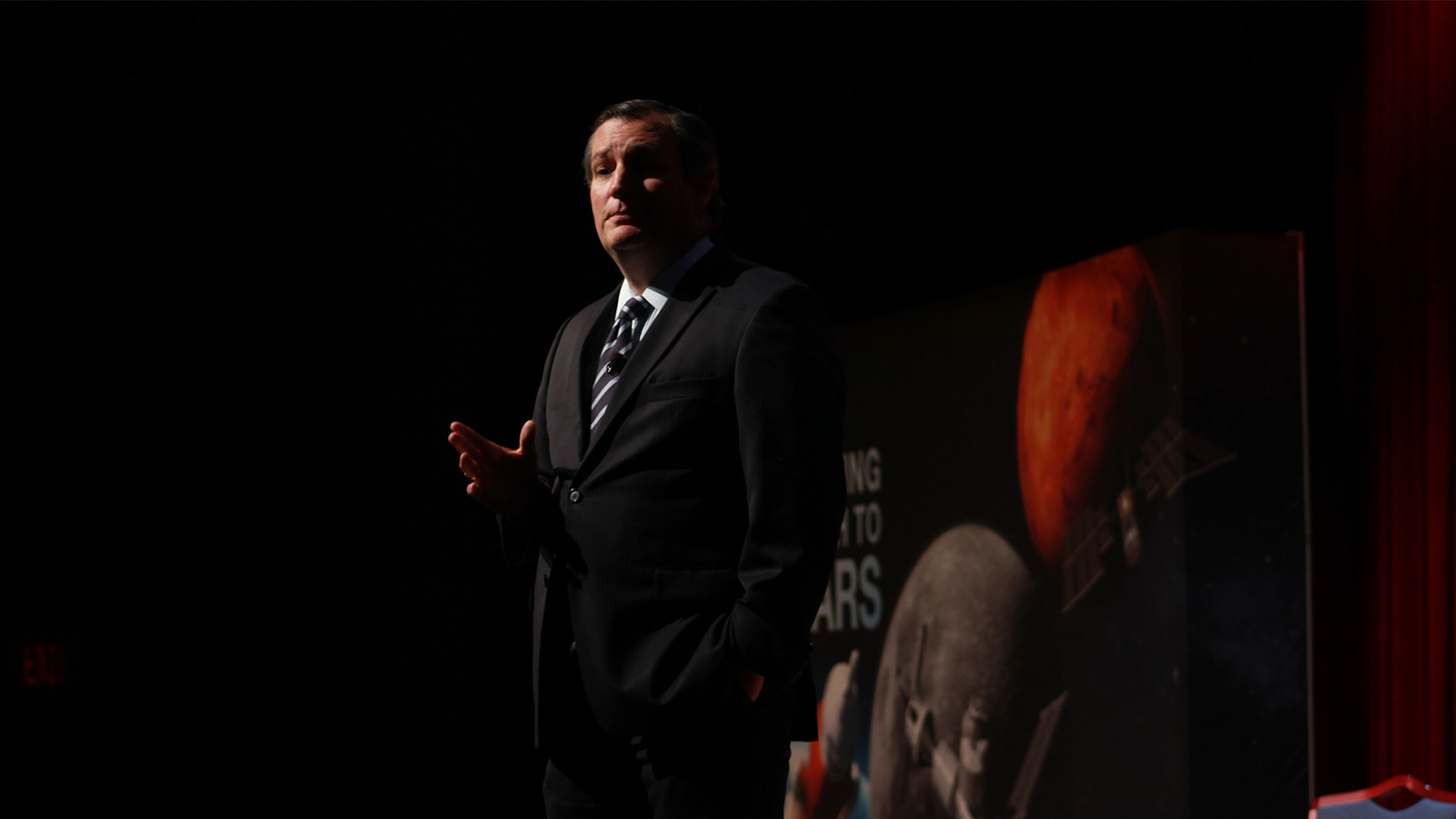Stay Up to Date
Submit your email address to receive the latest industry and Aerospace America news.
Space exploration could promise fortunes for companies, but Mars enthusiasts caution patience
U.S. Sen. Ted Cruz, R-Texas, offered a provocative prediction during this week’s Humans to Mars Summit in Washington, D.C.
“I believe the first trillionaire will be made in space,” Cruz said in an address Tuesday to the scientists, NASA officials and business executives gathered at George Washington University. “I don’t know how exactly.”
Attendees and presenters seemed optimistic about growth but less sure about Cruz’s trillionaire prediction that he originally voiced last year.
Rick Tumlinson, a founding partner of Star Century Partners venture capital firm in Texas, told me between sessions that the initial exploration of Mars in particular will not be profitable because there is so far no business on Mars that can’t be done closer to Earth. Tumlinson said charging for people to travel to Mars is a possible source of revenue. If companies aim to take advantage of low gravity for manufacturing, he said that could be done more efficiently on a space station or the moon without traveling millions of kilometers to Mars.
“As far as I’ve seen there is no business plan that [addresses] being able to go to Mars and do something of financial value,” Tumlinson told me.
Tumlinson is no stranger to thinking long term as the former chairman of California-based Deep Space Industries, founded in 2013 with the goal of eventually mining water from asteroids to provide oxygen and hydrogen for spacecraft fuel production or drinking water for deep space habitats. He says the company is paying bills along the way by developing technology including satellite propulsion needed to one day make asteroid mining possible.
“When we go out and talk to the financial community we have to have our feet really solidly on the ground in terms of what we are selling,” he said. “The people that are going to make money from going to Mars are the people who are going to sell the rides, the life support, the equipment and supply their needs once they are there.”
Chris Carberry, the co-founder of Explore Mars, which organized the Humans to Mars Summit, told me the immediate incentive to visit Mars is exploration and not business, although mining resources from asteroids promises to one day be profitable enough to create the first trillionaire.
“Right now, we don’t quite see what the market would be for Mars, but it’s the inspirational driver, the science driver, the future-of-humanity driver,” Carberry told me. “There will be a space trillionaire, it’s just a matter of whether someone gets there first making money the traditional way on Earth.”
Carberry noted that the net worth of Jeff Bezos, the California-based rocket manufacturer Blue Origin founder, surged past $100 billion in November, driven by the value of stock in his other company, Amazon. Tourism is part of Blue Origin’s business plan through the New Shepard rocket. The company will charge for six people at a time to travel to suborbital space on New Shepard for a short-term experience in microgravity.
NASA Administrator Jim Bridenstine, in a keynote address at the summit explained how matters could unfold: “We need a thriving [low Earth orbit] economy which can expand deeper into space and we need a government backbone to explore where an economy doesn’t yet exist,” Bridenstine said.
In the photo from Explore Mars at the top of this page, Sen. Ted Cruz of Texas speaks at the Human to Mars Summit on Tuesday in Washington, D.C.
“When we go out and talk to the financial community we have to have our feet really solidly on the ground in terms of what we are selling. The people that are going to make money from going to Mars are the people who are going to sell the rides, the life support, the equipment and supply their needs once they are there.”
Rick Tumlinson, a founding partner of Star Century Partners venture capital firm
About Tom Risen
As our staff reporter from 2017-2018, Tom covered breaking news and wrote features. He has reported for U.S. News & World Report, Slate and Atlantic Media.
Related Posts
Stay Up to Date
Submit your email address to receive the latest industry and Aerospace America news.




